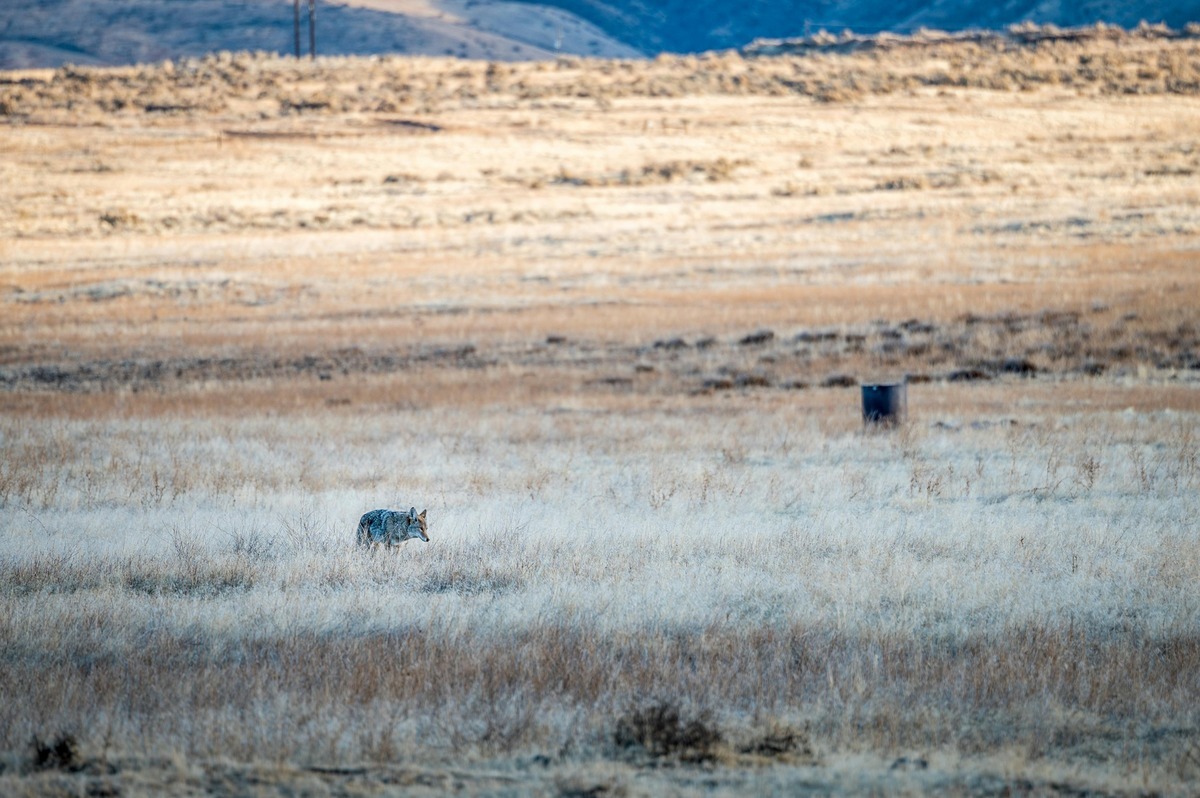Buying hunting land with no money down refers to acquiring property for hunting purposes without having to pay an upfront down payment. This can be achieved through various financing strategies and creative purchasing methods, allowing individuals to invest in hunting land without initially putting forth a significant amount of cash.
There are several ways to buy hunting land with no money down, including seller financing, lease-to-own agreements, land leasing, and partnerships with other investors. These methods can help spread the cost over time and reduce the initial financial burden, making it possible to secure hunting land without a significant upfront investment.
Please check the essential List befor buying land or property.
Strategies for Buy Hunting Land with No Money Down
Several strategies can help you buy hunting land with no money down. In this article, we will discuss the main strategies that many people in America follow. Each strategy is effective and can save your upfront down payment. These strategies include lease-to-own agreements, where you lease the land with an option to buy later; seller financing, where the owner finances the purchase directly; and partnerships, where multiple buyers share the cost. Other methods include bartering or trading assets and utilizing government programs and grants designed to support land purchases. These options can make it easier to invest in hunting land without needing a significant upfront payment.
Lease-to-Own Agreements
A lease with an option to buy, also known as a lease-option or rent-to-own agreement, is a contractual arrangement where you lease a property for a specific period with the option to purchase it at the end of the lease term. This strategy can be particularly useful for buying hunting land with no money down.
A lease with an option to buy involves signing a lease agreement with the landowner to rent the property for a predetermined period, typically 1 to 3 years, during which you pay rent as in any standard lease. The agreement includes an option clause granting you the exclusive right to purchase the property at the end of the lease term at a pre-agreed price. You might also pay a non-refundable option fee upfront, which counts towards the purchase if you buy. At the end of the lease, you can buy the property at the agreed price. If you choose not to buy, you can negotiate a new lease, move out, or lose the option fee.
Advantages of Lease-to-Own Agreements
- Low Initial Investment: Little to no down payment required, making it accessible for buyers with limited upfront cash.
- Time to Save: Provides time to save for a larger down payment or secure financing.
- Test the Property: Allows you to experience the property and its suitability for hunting before committing to purchase.
- Build Equity: Rent credits help build equity towards the purchase price over the lease term.
Disadvantages Lease-to-Own Agreements
- Non-Refundable Fees: The option fee is non-refundable if you decide not to purchase the property.
- Potential for Higher Purchase Price: The agreed-upon purchase price might be higher than the market value at the end of the lease term.
- Risk of Losing Credits: Failure to exercise the option to buy can result in losing any rent credits accumulated.
Hunting Land for Sale Owner Financing or seller financing
Hunting land for sale with owner financing allows buyers to purchase property without a large down payment. This financing hunting land method involves making payments directly to the seller over time, making it accessible for those who may not qualify for traditional loans. By using seller financing, buyers can often negotiate terms that fit their financial situation, making it easier to acquire hunting property. Explore listings on platforms like Newdaysproperties, LandWatch and Zillow or consult local land brokers to find hunting land for sale owner financing that suits your needs.
Benefits of Owner Financing Hunting Land
- Easier Approval: Easier to qualify for than a bank loan, especially if you have poor credit.
- Flexible Terms: Terms like payment amounts and schedule can be negotiated to fit both parties.
- No Bank Fees: You avoid the extra fees and costs associated with bank loans.
- Faster Process: Quicker process since it doesn’t involve waiting for bank approvals.
Disadvantages of Owner Financing Hunting Land
The Disadbantages of owner financing hunting land could be for both. Mean, for the buyer and also for the seller. Here are the disadvantages of hunting land owner financing for byer and seller.
Disadvantages for Buyer
- Higher Interest Rates: Seller-financed loans often have higher interest rates than traditional bank loans, leading to higher overall costs.
- Shorter Repayment Terms: Repayment periods might be shorter, resulting in higher monthly payments compared to conventional mortgages.
- Risk of Foreclosure: If the buyer defaults on payments, the seller can foreclose on the property, leading to the loss of any payments made and the property itself.
For the Seller
- Risk of Non-Payment: If the buyer defaults, the seller must go through the foreclosure process, which can be time-consuming and costly.
- Delayed Payment: Instead of receiving a lump sum upfront, the seller receives payments over time, which may not meet their financial needs.
- Maintenance and Management: If the property reverts to the seller due to default, the seller might need to manage or maintain the property until it can be sold again.
- Complexity: Seller financing agreements can be complex and require proper legal documentation to protect both parties, necessitating legal expertise.
- Market Fluctuations: If property values decrease, the seller might receive less value over time compared to an immediate sale.
- Due Diligence: The seller must perform thorough due diligence on the buyer’s creditworthiness and ability to make payments, which can be challenging without the resources of a financial institution.

Partnerships in Buying Hunting Land
An other best way to buy hunting land with no money down is Partnership in Buying hunting land. Partnerships involve teaming up with other individuals or investors to buy hunting land, sharing the costs, responsibilities, and benefits. This approach can be particularly useful if you don’t have enough funds or want to spread financial risk.
Considerations for Partnership in Buying Hunting land
- Partnership Agreement: A clear, written agreement is essential to avoid conflicts and misunderstandings. It should cover financial contributions, decision-making processes, and how disputes will be resolved.
- Decision-Making: Shared ownership means decisions about the land must be made collectively, which can be challenging if partners have differing opinions.
- Profit and Loss Sharing: Agree on how any profits or losses will be distributed. This includes income from leasing the land or expenses related to maintenance and taxes.
Exit Strategy:Plan for how partners can exit the partnership if needed, including how to value and sell their share of the property. - Legal and Tax Implications: Understand the legal and tax implications of forming a partnership, and consult with legal and financial advisors to ensure compliance and proper management.
Benefits Partnerships in Purchasing Hunting Land
Reduced Financial Burden: Sharing the costs of purchasing and maintaining the land can make it more affordable.
Shared Risk: Financial and operational risks are spread among partners, reducing the impact on any single individual.
Increased Resources: Pooling resources can enable the purchase of larger or higher-quality land than you could afford alone.
Diverse Skills and Expertise: Partners may bring different skills and expertise to the table, such as legal knowledge, property management, or hunting experience.
Bartering or Trade in Purchasing Hunting Land
Bartering or trade involves exchanging goods, services, or other assets instead of using cash to buy hunting land. This method can be useful if you have valuable items or services to offer and want to avoid traditional financing methods.
To barter for hunting land, first determine what valuable goods or services you can offer, like construction work or agricultural products. Negotiate with the landowner to agree on the value of your offer compared to the land’s price, including any conditions. Create a written agreement detailing the trade terms and delivery. After fulfilling your part, make sure the landowner transfers the property. Finally, have the trade documented legally and consult a lawyer to review the agreement.
Benefits of Bartering or Trade
No Cash Required: Bartering allows you to acquire land without needing to come up with cash for a down payment or the full purchase price. This can be particularly advantageous if you don’t have liquid funds available but have other valuable resources to offer instead.
Utilize Existing Assets: Instead of seeking additional financing or depleting your cash reserves, you can leverage goods or services you already possess. This approach can reduce financial strain and make use of resources you might otherwise not fully utilize.
Customizable Agreements: Bartering provides flexibility in negotiations, allowing you to tailor the terms of the exchange to meet both parties’ needs. This can include adjusting the value of the goods or services, setting specific timelines, or incorporating special conditions that benefit both the buyer and seller.
Creative Solutions: Bartering offers a non-traditional, innovative method for completing transactions, especially when traditional financing options are not viable. This creative approach can help overcome obstacles that might prevent you from acquiring the land through conventional means.

Government Programs and Grants for Buying Hunting Land
Government programs and grants can provide financial assistance or incentives to help you purchase hunting land. These programs often aim to support conservation, rural development, and outdoor recreational activities.
Conservation Programs
Conservation programs support the preservation and improvement of natural habitats, which can include hunting property. These programs provide valuable resources for those exploring how to buy hunting land or how to purchase hunting land affordably. Programs like the Conservation Reserve Program (CRP) and the Wetlands Reserve Program (WRP) offer financial support for converting environmentally sensitive areas into conservation use and for restoring wetlands, respectively. These programs help reduce the costs associated with buying hunting land by providing rental payments and cost-sharing, thereby lowering the overall expense of acquiring and managing hunting property. Additionally, they enhance the value of hunting property through habitat improvement, which can be beneficial when seeking hunting land loan or exploring ways to financing hunting land.
Rural Development Grants
Rural development grants are a valuable resource for those interested in buying hunting land.These grants aim to boost economic development in rural areas, including funding for hunting property. USDA Rural Development Grants provide financial aid for purchasing and developing land, which can be applied to acquiring hunting land. Additionally, various state and local programs offer grants to support the acquisition and improvement of rural land.
These grants can significantly reduce the financial burden of purchasing hunting land and assist with its development and upkeep, making them a useful option when exploring how to finance hunting land, seeking loans for hunting land, or considering hunting land loan.
Land and Water Conservation Fund (LWCF)
The Land and Water Conservation Fund (LWCF) is designed to support the acquisition and development of public lands for recreation and conservation. It funds projects that acquire land for parks, forests, and wildlife habitats, which can indirectly benefit those interested in purchasing hunting land by enhancing the surrounding areas.
LWCF grants are focused on public lands, they can enhance the overall environment, making it easier to find and financing hunting land . This can indirectly benefit individuals looking for hunting property for sale and those seeking to understand how to purchase hunting land or how to finance hunting land.
Regional Support and Funding Programs For buying Hunting land.
State-specific programs are valuable for those interested in buying hunting land. These programs offer local assistance for purchasing and managing hunting property within the state. State Wildlife Grants provide funding for preserving and managing wildlife habitats, which can support your efforts in purchasing hunting land. State Land Trusts and Conservation Funds also offer financial resources to conserve and manage land, including hunting property. By utilizing these state-specific programs, you can receive tailored support for buying hunting land, which simplifies the process of finding and acquiring hunting property for sale. They also aid in understanding how to finance hunting land, including exploring options like hunting land loan.
Best state to buy hunting land
When looking to invest in hunting land in the USA, several states stand out for their abundant wildlife and favorable conditions for hunters.
Buying Hunting Land in Texas
Buying hunting land in Texas is highly regarded for its diverse game and friendly hunting regulations. Consequently, it is a prime location to purchase hunting property, particularly in regions like Hill Country or East Texas. Furthermore, Texas combines abundant wildlife, diverse landscapes, and favorable hunting regulations, making it an ideal destination for investors looking to buy hunting property.
Montana : Cheapest State to Buy Hunting Land
Hunting land in Montana offers extensive public lands and opportunities to buy property in scenic areas. These include the Rocky Mountains and expansive prairies. For investors seeking hunting property, Montana’s blend of extensive public lands and diverse landscapes offers an unparalleled opportunity. They can enjoy hunting amid stunning natural beauty.
Purchasing Hunting Land in Wisconsin
Hunting Land in Wisconsin stands out for its abundant whitetail deer population, making it a top destination for deer hunters. The state offers a variety of financing hunting land options through local banks and specialized lenders, facilitating the purchase of hunting property. Whether in the wooded northern regions or agricultural areas, Wisconsin’s diverse landscapes provide excellent hunting opportunities. Hunters and investors alike benefit from these favorable conditions. This makes Wisconsin a prime choice for those looking to buy hunting land and pursue their passion for deer hunting in a supportive financial environment.
Georgia :Unveiling a Hunting Property
Investing in hunting land in Georgia offers several compelling reasons. Firstly, Georgia is renowned for its diverse hunting opportunities, particularly for deer and turkey hunting. The state’s varied landscapes, from mountains to coastal plains, provide habitats that support a wide range of game species. Additionally, Georgia’s mild climate allows for extended hunting seasons, enhancing the appeal for hunters throughout the year. The state also offers various financing hunting land options through local banks and lenders, facilitating land acquisitions. Moreover, Georgia’s pro-hunting regulations and supportive community of hunters contribute to a robust market for hunting land.
To purchase hunting land, start by researching states known for your preferred game species and suitable terrain. Utilize real estate websites, local agents specializing in hunting land, or dedicated hunting property brokers to find listings. Secure financing through hunting land loan offered by banks or government programs like the USDA Farm Service Agency (FSA). Prepare for a down payment, typically ranging from 20% to 30% for rural land purchases. Visit potential properties to assess hunting opportunities, access, and land conditions before negotiating terms and finalizing the purchase with a sales agreement. Conduct due diligence including inspections and legal review to ensure the property meets your requirements and complies with local regulations. Complete the transaction by signing closing documents and securing financing to make your investment in hunting land a reality.
Conclusion
While buying hunting land with no money down requires some effort and planning. It can be a great way to achieve your dream of owning a piece of hunting property. By exploring financing options like seller financing, lease-to-ownership agreements, or partnerships. You can find creative ways to secure hunting land without a large upfront investment. Government programs and grants can also offer valuable assistance in purchasing and managing hunting land. Remember to research different states and hunting properties for sale to find the one that best suits your needs and budget. With careful planning and the strategies outlined in this article, you can turn your dream of hunting land ownership into a reality.



